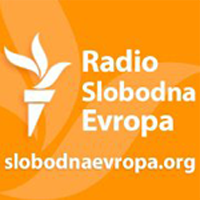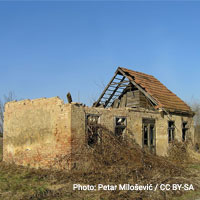(srpski) U poslaničkoj klupi Skupštine Srbije sa krivičnom prijavom za ratne zločine u BiH

Sorry, this entry is only available in srpski.


Sorry, this entry is only available in srpski.

Sorry, this entry is only available in srpski.

Sorry, this entry is only available in srpski.

Sorry, this entry is only available in srpski.

Sorry, this entry is only available in srpski.

 This year marks25 years since the military and police action “Storm” (Oluja), during which Croatian military forces committed numerous crimes against Serbs living in the area of the so-called Republic of Srpska Krajina. Even after 25 years, justice for the victims of the crimes committed has not yet been achieved, responsibility for which must be carried by the institutions of both Croatia and Serbia. While the anniversary of Operation Storm continues to be celebrated in Croatia, ignoring the atrocities committed during and after that action, Serbian state representatives misuse the victims for political purposes during state-sponsored commemorations of the same event. Both states have a legal and moral obligation to change the relationship to the crimes committed during Operation Storm, and to show that the care of the victims and prosecution of those responsible for war crimes is to be a pillar of future reconciliation.
This year marks25 years since the military and police action “Storm” (Oluja), during which Croatian military forces committed numerous crimes against Serbs living in the area of the so-called Republic of Srpska Krajina. Even after 25 years, justice for the victims of the crimes committed has not yet been achieved, responsibility for which must be carried by the institutions of both Croatia and Serbia. While the anniversary of Operation Storm continues to be celebrated in Croatia, ignoring the atrocities committed during and after that action, Serbian state representatives misuse the victims for political purposes during state-sponsored commemorations of the same event. Both states have a legal and moral obligation to change the relationship to the crimes committed during Operation Storm, and to show that the care of the victims and prosecution of those responsible for war crimes is to be a pillar of future reconciliation.

Sorry, this entry is only available in srpski.

Sorry, this entry is only available in srpski.

 How and why does wartime violence against civilians occur in the communities that have lived together in peace for a long time? Why does this happen in some local-level communities and not in others? How does memory of the past waves of violence matter in this context? In our first episode in English, we are discussing these questions on the examples of armed conflicts in Croatia, Uganda and Guatemala. Our guest is Mila Dragojević, Associate Professor in Politics at the University of South, Sewanee and the author of Amoral Communities: Collective Crimes in Time of War.
How and why does wartime violence against civilians occur in the communities that have lived together in peace for a long time? Why does this happen in some local-level communities and not in others? How does memory of the past waves of violence matter in this context? In our first episode in English, we are discussing these questions on the examples of armed conflicts in Croatia, Uganda and Guatemala. Our guest is Mila Dragojević, Associate Professor in Politics at the University of South, Sewanee and the author of Amoral Communities: Collective Crimes in Time of War.

Sorry, this entry is only available in srpski.